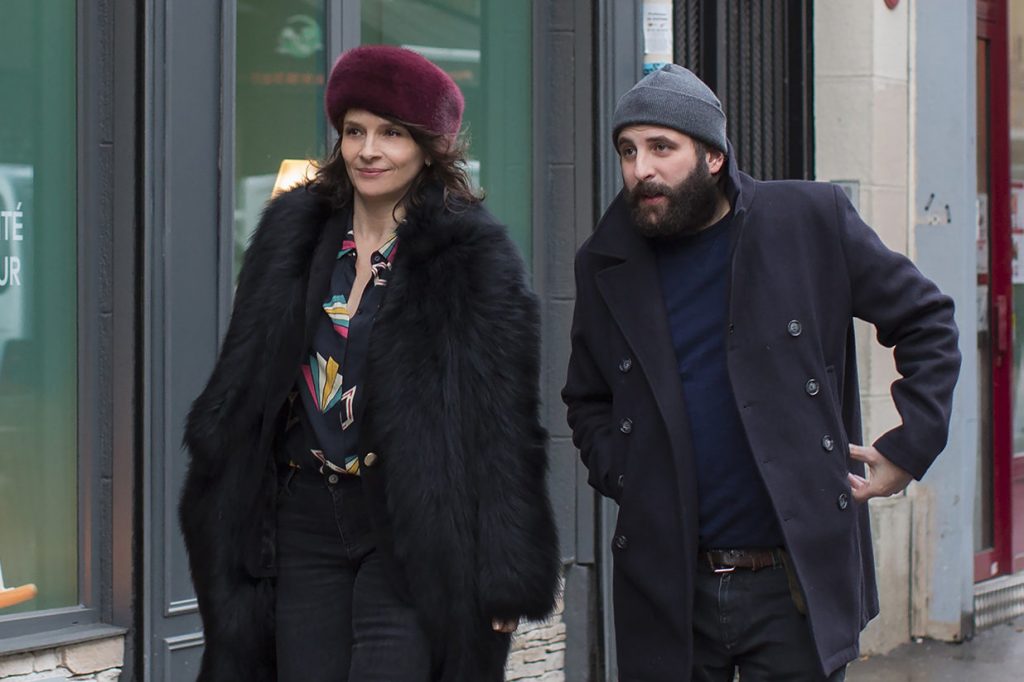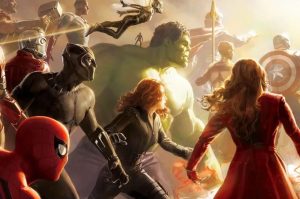To understand the differing status of the arts in Britain and France, compare the publishers in Bridget Jones’s Diary and Olivier Assayas’s new film, Non-Fiction. In Bridget Jones’s Diary, Daniel Cleaver (Hugh Grant) is an underwear-obsessed cad who gets his comeuppance when he is beaten up by Colin Firth. In Non-Fiction, Alain Danielson ruminates philosophically about what the ‘digital transition’ means for civilization, and indulges in plenty of Cleaver-style trifling with the staff, but gets away with both. We are reminded that ‘intellectual’ is a compliment in France but a dirty word in Britain, and that sex is dirty in Britain but intellectual in France.
In the United States, home of the Know-Nothing and the vaginal deodorant, ‘intellectual’ is a dirty word and sex a dirty business. To understand the differing status of the arts in Europe and the United States, consider the chances of Hollywood ever making a film in which a publisher is a major character. There have been polemical films about the news (All the President’s Men, Network, Broadcast News, The Post), but not about publishing. The American equivalent of Non-Fiction would be Robert Altman’s The Player, or Orson Welles’s The Far Side of the Wind, or the Coen Brothers’ Barton Fink, films about films. The French would call this Anglo-Saxon pragmatism. If you have the resources of a film company, which is about as dirty as business gets, why make a film glamorizing an older, snootier form of entertainment, and one which claims to have inky fingers but clean hands?
The answer, if you are French or even British, would be the historic eminence and enduring capacity of literature. Though the great novelists of the past are artistic royalty, historic eminence means nothing once an author has been dead for seventy years: no copyright, no royalties. Nor is it clear that novels, or at least novelists, still possess the capacity to describe their time in the way that Defoe, Balzac or Dickens did. There are occasional exceptions, Michel Houellebecq for instance, but none of them are American or British. In Non-Fiction, optimists and pessimists alike claim that Twitter is the true reflection of our lives and literary values. Anyone who has spent any time on Twitter will sympathize with Voltaire, who was invited to lunch by the Duc de Sully, and then beaten up by de Sully’s footmen for having insulted their employer in print.
Alain Danielson (Guillaume Canet) is an editor at Editions Vertheuil, a venerable and long-lunching Parisian institution. The company is going through the ‘digital transition’, and Alain, like everyone else these days, is in two minds, one analog, the other digital. To Léonard, one of his less lucrative authors, Alain compares the aphoristic format of Twitter to the banter of French writers before the Revolution. To Laure (Christa Théret), a young techie hired to complete Vertheuil’s digital transition, Alain quotes Mallarmé and defends the uniqueness of print and the feel of the page: ‘We are custodians of an idea which passes through time.’
Alain dislikes the digital revolution — ‘No one asks us, and then it’s too late’ — but he sees that its coup d’état cannot be reversed. He wonders why Lampedusa’s line in The Leopard, ‘For things to remain the same, everything must change’, has become a commonplace of our time, and hopes that things will be the same for him, however they change for literature. His attitude resembles the one-liner attributed to Madame de Pompadour before the French Revolution, ‘Après nous, le déluge’: ‘After us, the flood’ . But the digital flood has already washed through language and literature, and leveled all cultural life.
Alain accommodates himself to the new regime, and sleeps with Laure. Alain’s wife Selena (Juliette Binoche) is a traditionalist in that she is having an affair with Léonard, who is also a traditionalist in his disregard for the American cults of hygiene and diet, but Selena, a classically trained actress, is completing the third series of a CSI rip-off called Collusion. Léonard claims to despise digital life, but that ‘radicalism’, Alain accurately observes, merely refines the narcissism of the age. Léonard lives off his wife Valérie (Nora Hamzawi), an assistant to a socialist politician. Everyone’s life and values are almost entirely mediated by technology. Even Valérie, the materialist in politics, carries a sack of digital devices.
Non-Fiction’s French title is Doubles vies, ‘Double Lives’. Digitization has created a new double life for Assayas’s characters — all of them manufacture an image for the screen — but it is taking away their old double lives, the public and the private. Valérie, insisting on hereditary privacy, doesn’t want to know about Léonard’s affair with Selena, but she also tells her boss that politicians have lost the privacy that was once their caste privilege, and must be ‘transparent’. Léonard plays the old game of writing novels about real people — a game that went from French literature to American literature to American cinema in films like The Player — but finds that his readers no longer see a division between real and fictional characters, and accuse him of plagiarizing their rights to their images. Never mind literature; will the French tradition of adultery survive the digital transition?
I enjoyed both of Binoche’s recent turns as a French artist in crisis, with Assayas in Clouds of Sils Maria and Clair Denis in Let the Sunshine In. But Non-Fiction feels a little too smug, in the way of an Altman or Soderbergh film in which famous people play themselves. The first hour of Non-Fiction is a clever and expertly played depiction of a modern media aristocracy in an age of populist revolt — the restaurant scenes are misty with nostalgia, as though everyone is still smoking at the table — but the second hour drags, as if Assayas is resisting the implications of the set-up. It’s a film which seems, like most modern fiction and many of our custodians of culture, to have lost the plot.
Dominic Green is Life & Arts Editor of Spectator USA.


















